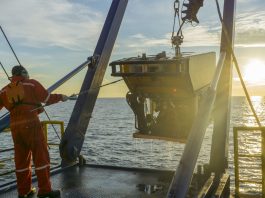Simone Accornero, EUSEW Young Energy Ambassador, discusses how corporate renewable energy procurement in Europe is growing, but clearer EU rules are needed to ensure real climate impact.
In 2023, the amount of renewable energy purchased by businesses and corporations in Europe grew by over 52%, reaching 20 GWs.
However, several academic papers like Bjorn, A. et al. (2022) have questioned the true emission reduction behind these figures, sparking debate over the credibility of companies’ environmental claims based on renewable energy procurement, a position echoed in leading media outlets like The Washington Post, Financial Times and Wall Street Journal.
Critics argue that allowing companies to purchase certificates (e.g., Guarantees of Origin) to claim renewable electricity use without any rules on where, when and from which asset the GoOs originated doesn’t always result in tangible emission reductions, doesn’t incentivise building additional renewable energy generation and creates market distortions like Norway exporting more GoOs than actual renewable electricity – Paris, A. et al. (2024).
Meanwhile, the recent “Draghi Report” on EU competitiveness highlighted the importance of corporate renewable energy procurement through Power Purchase Agreements (PPAs) for bolstering the EU’s industrial resilience. This debate is central to EU policymakers, affecting both the bloc’s industrial competitiveness and its role as climate transition leader and policy innovator.
How are renewable energy use claims dealt with in EU rules?
The RFNBO Delegated Act imposes strict rules for proving renewable electricity use in green H2, ammonia, etc.
It must be generated locally, within the same hour as consumption and from newly built power plants. This shows EU leadership, as similar US rules under the 45V Clean Hydrogen Tax Credit were recently ratified.
On the other hand, the Carbon Border Adjustment Mechanism (CBAM) allows exporters from outside the EU to rely on renewable energy procurement to lower products’ embedded emissions without any of the strict rules of the RFNBO Delegated Act mentioned above.
Lax rules are also present in the EU’s renewable electricity reporting rules for Data Centers (EU 2024/1364).
The recent EV Batteries Delegated Act takes a completely different position by not allowing renewable energy procurement in any shape or form to reduce embedded emissions. This has caused a recent outcry from many companies and trade associations.
Transparency and accountability through corporate sustainability reporting
Beyond the above policies, the Corporate Sustainability Reporting Directive (CSRD) introduces mandatory reporting, requiring large companies, listed SMEs, and non-EU firms with significant EU activity to disclose detailed sustainability data, including renewable energy use and related emissions.
However, CSRD rules for renewable energy usage claims are based on the GHG Protocol Scope 2 Guidelines – the global standard for corporate renewable energy claims and related carbon emissions – which is currently being revised. It is, therefore, currently unclear what rules companies will have to follow.
Driving global change and future steps
As society strives to electrify energy usage, decarbonise electricity generation and link financial and carbon markets, the definition of what it really means for companies to procure and consume green energy is pivotal.
As a Young Energy Ambassador, I urge the EU to show clear signs that it supports fostering, not undermining, renewable energy procurement, with clearer and stricter rules that incentivise developing additional renewable energy capacity.
With improved rules and stringent mandatory reporting, corporate renewable procurement can drive lasting climate impact and bolster the EU’s industrial resilience.
This opinion editorial is produced in co-operation with the European Sustainable Energy Week 2025. See ec.europa.eu/eusew for open calls.
Recommended links
- Global Renewable Alliance: Corporate Sourcing
- Bridging Demand and Financing: Voluntary Offtake in Clean Energy
- Data center emissions probably 662% higher than big tech claims. Can it keep up the ruse?
- A closer look at the 45V final rule
- The GHG Protocol Revision: What will be Reviewed in Scope 2 Reporting?
About the author
Simone is the co-founder and CPO of Flexidao – a clean energy intelligence platform provider – and a key figure in the advancing clean energy procurement space. He is known for his active role in the development of new standards and guidelines in collaboration with the GHG Protocol Technical Working Group, the EnergyTag initiative, the Global Renewable Alliance, and the Linux Energy Foundation.
Disclaimer: This article is a contribution from a partner. All rights reserved.
Neither the European Commission nor any person acting on behalf of the Commission is responsible for the use that might be made of the information in the article. The opinions expressed are those of the author(s) only and should not be considered as representative of the European Commission’s official position.









